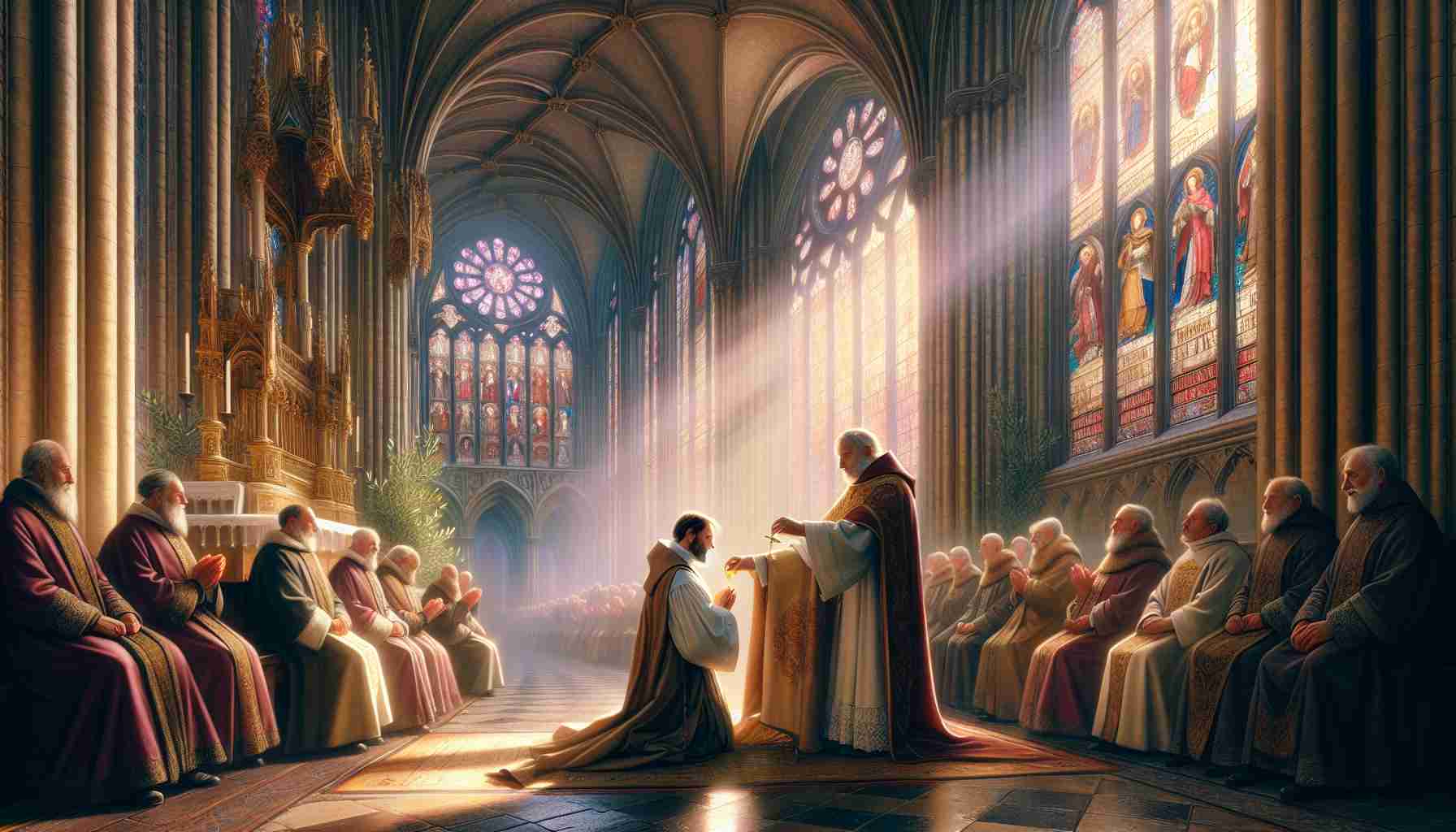

The early morning bells of Noyon tolled like a divine summons through the mist-veiled valley. Damp stone echoed with chanting as monks filed into the cathedral, their voices layering like incense in the cold July air. Candles flared in the choir, their reflections dancing in the polished bronze of a newly forged crown—simple, yet weighty with promise.
Outside, noblemen in furs and mail clustered by their emerald-brocaded banners as horses frothed and shifted beneath them. The banners bore ancient arms, some Frankish, some born of pagan legacy. But today, all would bow beneath a single cross. It was July 3, 987, and France would take a new king—not by blood alone, but by the will of God.
Within the vaulted nave, as the chant swelled, Hugh Capet knelt before the altar. His hands, calloused from years of war and statecraft, trembled slightly beneath the bishop’s as the Archbishop Adalberon—his silver beard moving with the Latin prayers—anointed him with holy oil, old as Merovingian rule.
A hush blanketed the cathedral like falling snow. The oil dripped—olive pressed from the Holy Land, its scent cutting through incense—and touched the young man’s brow. Psalm 78:70 rang silently in his heart: He chose David his servant and took him from the sheep pens. Not a warrior-king in the mold of Charlemagne, Hugh had been born of lesser rank—Duke of the Franks, a noble, yes, but not royal. Yet none doubted this coronation was heaven-ordained.
Outside, the people stirred. Women clutched babes against their woolen cloaks, murmuring blessings. The old spoke of prophecy fulfilled. Others, more cynical, muttered of politics and coronation schemes—of Carolingian heirs passed over, of nobles backing a weaker king to hold more power themselves. But Adalberon, a scholar of Scripture and Rome, made it plain: “Better one who truly serves Christ than a prince who seeks only legacy.”
As the crown touched Hugh’s brow, the sun struck the stained glass behind the altar. Light streamed through the saints—Denis, Martin, and Remigius—and broke across the nave in shards of crimson and rose. In the flickering kaleidoscope stood the new king, now not just a ruler of land, but guardian of a faith-bound nation.
A monk watching from the transept later recounted the moment—how Hugh’s eyes welled not with pride, but with fear and awe. For to wear the crown was to carry the weight of salvation for the realm. Not in sword alone would France survive, but in monasteries restored, in abbots trained, in the word of God taught from the Pyrenees to Flanders.
And so he began—not with edicts of war, but grants to Cluny and Fleury, strengthening the sacred orders. Wherever abbots cried for reform, his seal followed. He summoned councils where Scripture was read aloud and bishops reminded that their croziers were not scepters. Quietly, his hand shaped the divine spine of France.
But not all saw holiness. Petty lords grumbled in stone keeps. The Charles of Lorraine, last Carolingian, disputed the crown and marched with arms. Yet even his captains fled to Hugh’s mercy, and Lorraine fell without a final blow. Some said the king prayed three nights barefoot in the abbey of Saint-Denis before deciding Charles’s fate—not to kill, but to confine.
Still, the crown sat uneasy. Hugh wore no purple, claimed no Caesar legacy. His strength came not from imperial vision, but through a vow carved deep before Christ’s bones: to be steward for his people, not master.
Decades would pass, and his son would rise after him—not seized into rule, but ordained as heir during Hugh’s lifetime, a quiet revolution securing royal succession not by brute tradition but by consent and faith. The Capetian line would hold the throne for eight hundred years, their blood flowing beyond the crusades, the cathedrals, even the Revolution.
Yet it began here, in the half-light of Noyon’s apse, where a man knelt—neither prophet nor conqueror—and rose as king with the aroma of holy oil upon him.
When the bells rang again at dusk, and the fires lit in the villages from Laon to Paris, mothers told stories beside the hearth. Not of battles or riches, but of a king chosen like David from among the flocks—and of a nation that might yet be led, not by dominion, but by devotion.